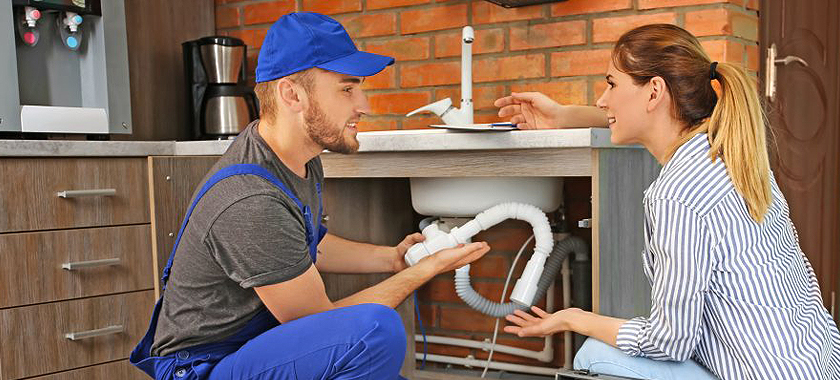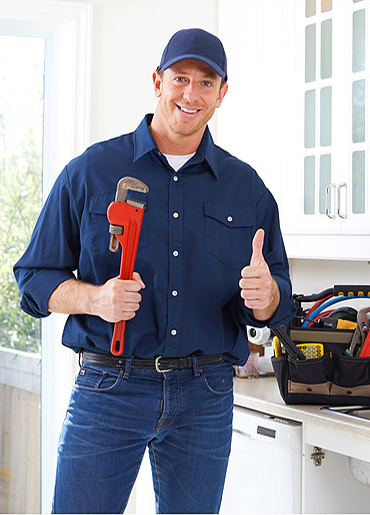Introduction
When it comes to home maintenance, few things can disrupt your daily life as quickly as a plumbing emergency. Whether it's a burst pipe spewing water all over your kitchen floor or a clogged toilet threatening to overflow, these situations can escalate quickly—both in terms of damage and repair costs. Understanding the ins and outs of emergency plumbing can save you not only money but also the stress that comes with unexpected repairs. This comprehensive guide, “ Emergency Plumbing 101: Identifying Urgent Issues and Managing Unexpected Costs,” will walk you through identifying urgent plumbing issues and managing their costs effectively.
Understanding Emergency Plumbing
What is Emergency Plumbing?
Emergency plumbing plumber near me refers to urgent plumbing services that require immediate attention. These situations often involve severe leaks, blockages, or any other problem that could lead to significant damage if not addressed promptly.
Why Is It Important?
Ignoring plumbing emergencies can result in extensive water damage, creating mold problems or structural issues in your home. Timely intervention can prevent small issues from morphing into costly repairs.
Common Types of Plumbing Emergencies
Burst Pipes
Burst pipes are one of the most common emergencies homeowners face. A sudden spike in water pressure or temperature fluctuations can lead to catastrophic failure.
- Symptoms: Water pooling on floors, sudden drops in water pressure. Immediate Action: Shut off the main water supply and call an emergency plumber.
Clogged Drains
While a minor clog may seem manageable, serious blockages can cause backflow or slow drainage that leads to flooding.
- Symptoms: Gurgling sounds, slow draining sinks. Immediate Action: Avoid using chemical drain cleaners; instead, contact a professional.
Leaky Faucets
Although they may seem trivial, leaky faucets can waste gallons of water and lead to mold growth if left unattended.

- Symptoms: Constant dripping noise. Immediate Action: Turn off the faucet and check for visible leaks while waiting for a plumber.
Overrunning Toilets
An overflowing toilet is not just an inconvenience; it’s a sanitation hazard that requires immediate attention.
- Symptoms: Water spilling over the toilet bowl. Immediate Action: Turn off the toilet's shut-off valve and call for help.
Recognizing Urgency in Plumbing Issues
How Do You Identify Urgent Situations?
To differentiate between regular maintenance tasks and emergencies, consider these questions:
Is there significant water damage occurring? Does the issue pose health risks (like sewage backup)? Could this problem worsen if not addressed immediately?By answering these questions, you can better assess the urgency of your plumbing situation.
Managing Unexpected Costs
Understanding Pricing Structures
Hourly Rates vs Flat Fees
Most plumbers charge either hourly rates or flat fees for specific services. Knowing what to expect helps you budget accordingly.
- Hourly Rates: Typically range from $75-$150 per hour. Flat Fees: Can be anywhere from $100-$500 depending on the job complexity.
Additional Charges
Always inquire about potential extra charges for materials or after-hours service to avoid surprises on your bill.
Budgeting for Emergency Plumbing Services
Creating a financial cushion specifically for emergency repairs can alleviate stress when urgent situations arise. Consider setting aside 1% of your home’s value annually for unexpected expenses related to home maintenance, including emergency plumbing services.
Preventative Measures
Regular Maintenance Checks
Scheduling routine inspections of your plumbing system can identify small issues before they escalate into emergencies. Consider hiring a professional plumber at least once every year for thorough checks.
DIY Solutions
While some problems demand professional intervention, others are manageable with basic tools and knowledge:
Unclogging Drains
Use a plunger. Try hot water mixed with baking soda. If these fail, call in an expert rather than risking further damage.Fixing Leaks
Tighten loose fittings. Replace worn-out washers. For persistent problems, consult a professional plumber.Questions Homeowners Frequently Ask About Emergency Plumbing
What should I do first during a plumbing emergency?
Shut off the main water supply immediately to minimize damage before calling an emergency plumber.
How much does emergency plumbing typically cost?
Costs vary widely but expect anywhere from $75-$500 depending on severity and time of day when service is needed.
Can I fix emergencies myself?
Minor issues like small leaks or unclogged drains might be manageable; however, serious problems like burst pipes should always be left to professionals.
When should I call an emergency plumber?
If there's significant flooding or any situation posing health risks (e.g., sewer backups), call immediately without hesitation!
Are there warranties on emergency work done by plumbers?
Many reputable plumbers offer warranties on their work which typically covers parts and labor; always ask before hiring someone!
Do I need permits for major plumbing work?
Yes! Major installations often require permits—check local regulations before proceeding with extensive projects.


Conclusion
In summary, understanding “Emergency Plumbing 101: Identifying Urgent Issues and Managing Unexpected Costs” equips homeowners with essential knowledge to tackle unforeseen challenges effectively. From recognizing urgent issues to managing costs efficiently through budgeting and preventative measures—being proactive pays off! By staying informed and prepared, you ensure that you’re ready when those emergencies hit because let’s face it; they will happen sooner or later! So keep this guide handy—you never know when it might come in handy!